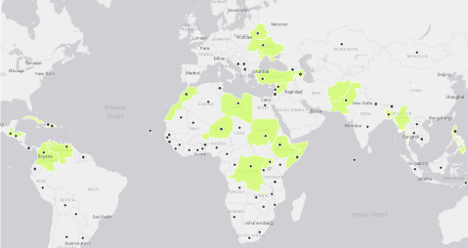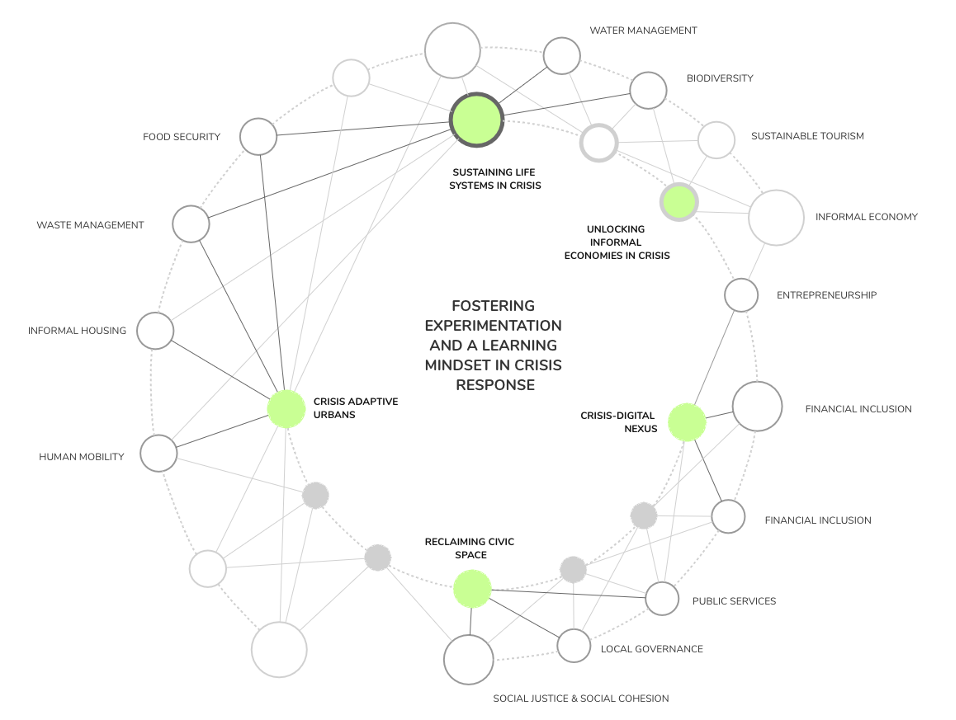Powered by

Powered by



In an era marked by protracted crises—ranging from violent conflict and political upheaval to economic collapse and environmental disasters—development models must evolve to remain relevant and effective. The UNDP Accelerator Labs (AccLabs) have emerged as a pioneering force in this transformation, embedding research and development (R&D) practices into the heart of crisis response. These labs promote an experimentation mindset—one that embraces uncertainty, values iterative learning, and centers community knowledge—to co-create solutions where traditional interventions often fall short.


In crisis-affected environments, the Accelerator Labs have focused on urban resilience by addressing the interconnected challenges of waste management, informal housing, and human mobility. These urba…
In crisis-affected settings, where institutional collapse and environmental degradation intersect, the Accelerator Labs have engaged in R&D initiatives that address the urgent need for sustainable…
In crisis-affected contexts, where formal economic systems are often weakened or disrupted, the Accelerator Labs have focused R&D efforts on strengthening resilient livelihoods through entrepreneu…
In crisis-affected settings where institutional infrastructure is weakened or absent, digital transformation has emerged as a critical enabler for expanding access to financial services, education, an…
In crisis settings where governance systems are weakened or fractured, the Accelerator Labs have focused their R&D efforts on restoring trust, rebuilding civic infrastructure, and fostering inclus…
In crisis-affected settings, the Accelerator Labs have worked to embed a culture of research and experimentation within institutions, communities, and local ecosystems. This approach recognizes that t…

SDG(s)
Sustainable Development Goal(s)
 1No poverty
1No poverty 5Gender equality
5Gender equality 8Decent work and economic growth
8Decent work and economic growth 15Life on land
15Life on land 17Partnerships for the goals
17Partnerships for the goals 4Quality education
4Quality education 14Life below water
14Life below water 9Industry, innovation and infrastructure
9Industry, innovation and infrastructure 10Reduced innequalities
10Reduced innequalities 3Good health and well-being
3Good health and well-being 17Partnerships for the goals
17Partnerships for the goals 4Quality education
4Quality education 14Life below water
14Life below water 9Industry, innovation and infrastructure
9Industry, innovation and infrastructure 10Reduced innequalities
10Reduced innequalities 3Good health and well-being
3Good health and well-being